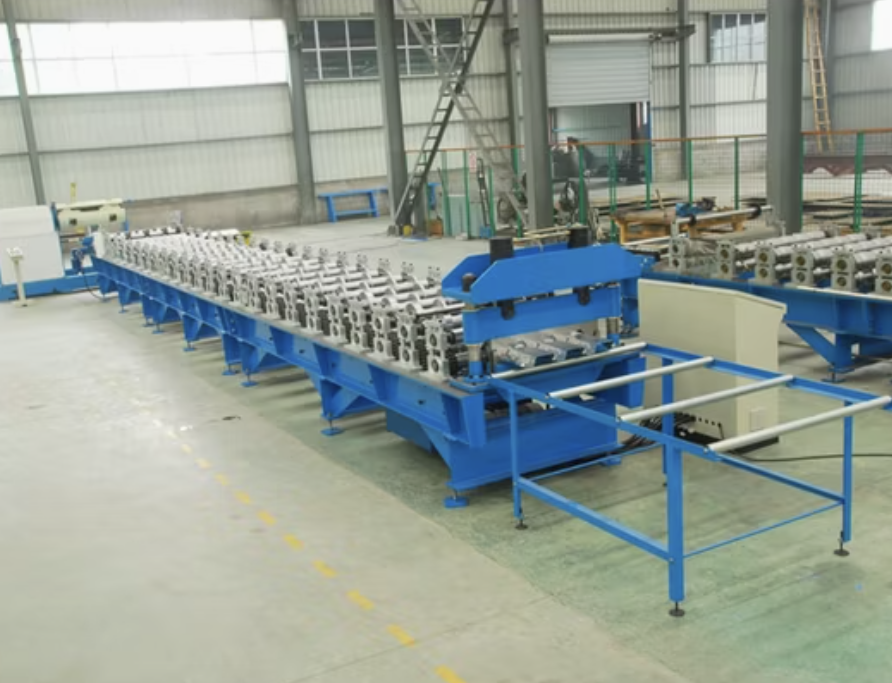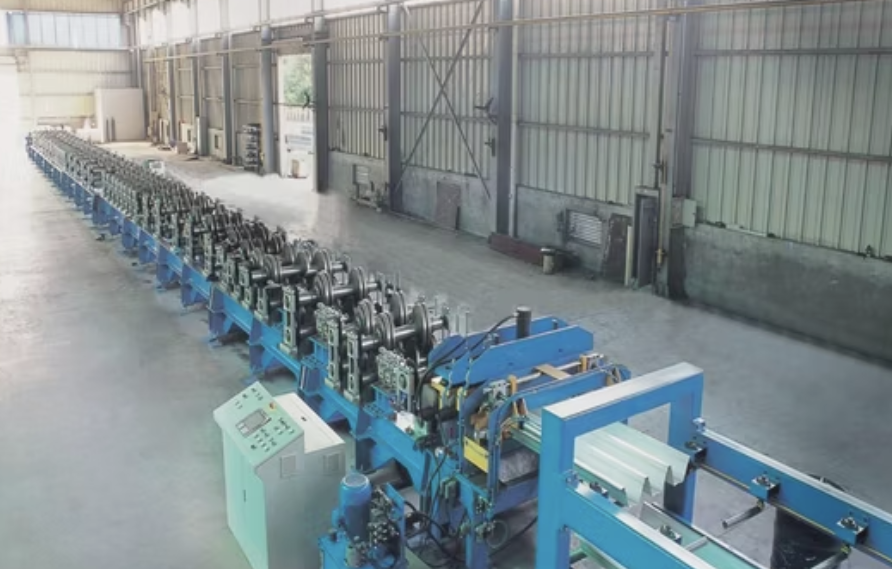To express an interest in this machine please submit the form below.

Not Sure What Machine You Need?
Select Your Profile, We'll Match It
Choose your desired profile drawing, and let Machine Matcher connect you with the best roll forming machine tailored to your needs.
Browse Profiles



A floor deck roll forming machine is designed to produce high-quality floor decking panels commonly used in the construction industry for floors, roofs, and composite slabs. These machines are essential for creating sturdy and reliable floor deck profiles, ensuring structural integrity and durability in building projects. Floor deck panels produced by these machines often feature grooves or embossments that enhance bonding with concrete, providing enhanced load-bearing capacity and resistance to seismic activity.
A typical floor deck roll forming machine includes the following components and specifications:
The floor deck panels created by these machines are made from galvanized steel or other durable metals suitable for structural applications. Profiles include embossments and grooves that improve bonding between the concrete and the decking panel. Common profiles vary by regional standards but typically include ribbed or corrugated designs, ideal for composite flooring systems.
Prices for floor deck roll forming machines can range widely based on customization, speed, and included features:
Installation involves positioning the machine, aligning the rollers, setting up the PLC system, and testing production output. Professional installation services are often recommended to ensure optimal performance. After installation, the machine should undergo regular calibration and maintenance checks to maintain output quality.
Regular maintenance includes:
Q1: What materials are compatible with a floor deck roll forming machine?
A1: Floor deck roll forming machines are compatible with galvanized steel, aluminum, and other high-strength metals with gauges between 0.8 mm and 1.5 mm, suitable for heavy-duty structural applications.
Q2: How does a floor deck panel improve structural strength in construction?
A2: The floor deck panels are designed with grooves and embossments to improve bonding with concrete, distributing loads evenly and enhancing the structural integrity of floors, roofs, and slabs, especially in multi-story and high-rise buildings.
Q3: Can the machine be customized to produce different profiles?
A3: Yes, most floor deck roll forming machines can be customized to produce various profile widths, heights, and embossment patterns. The PLC system allows for adjustments in profile dimensions based on specific project requirements.
Q4: What safety features are included in a floor deck roll forming machine?
A4: Safety features include protective guards, emergency stop buttons, and safety enclosures to protect operators from moving parts and high-speed production operations.
Q5: How often should maintenance be performed on the machine?
A5: Regular maintenance should be performed monthly, focusing on lubrication, part inspection, and system checks to prevent wear and ensure consistent production quality.
Q6: How long does it take to set up a floor deck roll forming machine?
A6: Setup times vary based on machine complexity and facility layout. It generally takes one to three days to install and calibrate the machine for full production, especially if performed by professional technicians.
Q7: Is training required to operate the machine?
A7: Yes, training is recommended for operators to understand the machine’s PLC control system, maintenance routines, and safety procedures. Many manufacturers provide training as part of the installation package.
This guide offers a comprehensive view of floor deck roll forming machines, helping users understand their specifications, applications, and maintenance requirements. If you're considering investing in a floor deck roll forming machine, be sure to consult with the manufacturer for specific details and customization options to best meet your project needs.
Copyright 2026 © Machine Matcher.